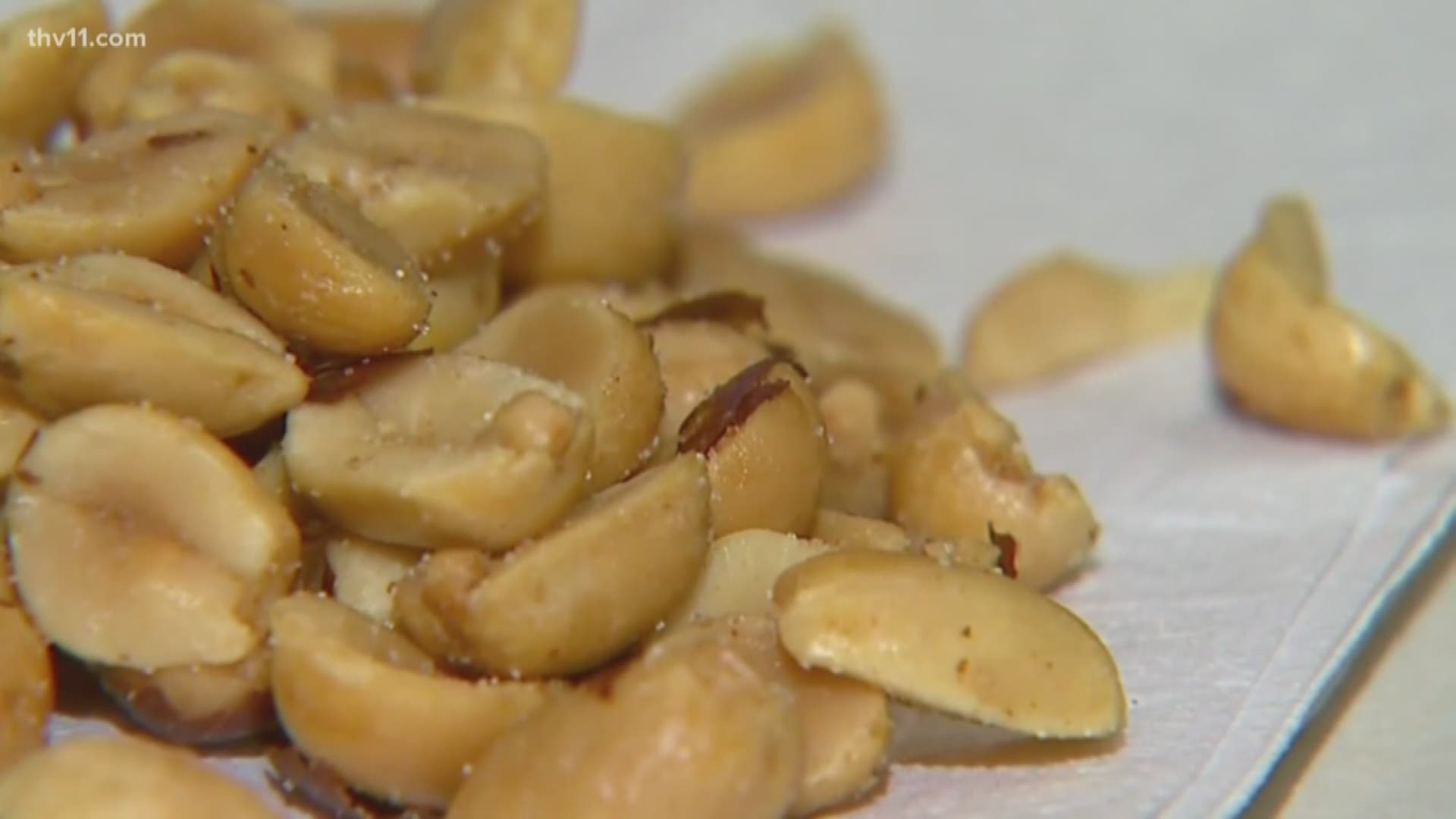LITTLE ROCK, Ark. (KTHV) – A groundbreaking clinical research trial conducted at Arkansas Children’s Research Institute (ACRI) and 65 other sites has produced what could become the first oral immune therapy to treat peanut allergy, and was featured Sunday, Nov. 18 in the New England Journal of Medicine (NEJM).
The work occurred in the Pediatric Clinical Research Unit at ACRI, under the leadership of Stacie Jones, MD, chief of Allergy & Immunology at ACH and a professor of Pediatrics in the University of Arkansas for Medical Sciences (UAMS) College of Medicine. Jones, who also holds the Dr. and Mrs. Leeman King Chair in Pediatric Allergy, is included as an author of the NEJM manuscript.
The study is the largest oral immunotherapy trial ever conducted, with nearly 500 participants between the ages of 4 and 17. Children were enrolled in the Peanut Allergy Oral Immunotherapy Study of AR101 for Desensitization (PALISADE) study at 66 sites across 10 countries if they reacted to a food challenge of approximately one third of a peanut.
Participants took gradually increasing amounts of either peanut powder or a placebo over six months. The study participants and their doctors didn’t know which they received until the blinded study period ended.
The manuscript in NEJM shows that 67 percent of the children who received the study treatment tolerated the equivalent of about two peanuts by the study’s conclusion. That’s compared to just 4 percent of the participants who received the placebo.
“This provides hope to families that there is going to be a treatment in the future for their children with peanut allergy,” Jones said. “For the first time, they have reassurance and encouragement that a peanut allergy may one day be treatable.”
Currently, the millions of children across the globe who have peanut allergy have no approved treatment options, and rely on diet restriction and rescue injections when they encounter life-threatening reactions.
“For the first time, we’re seeing potential that it doesn’t have to be that way,” Jones said.
She had a warning for families, though.
“It’s very important that this study happened in food allergy centers that had experience with food allergic patients and anaphylaxis to keep those patients safe,” Jones said. “This is not something that can be replicated safely outside that environment.”
Indeed, 12 percent of the children who participated in the study dropped out because they experienced reactions or other problems. Overall, 20 percent of those initially enrolled quit the study.
The research culminates years of extensive research on peanut allergy among children in Arkansas with global impact. The first peanut oral immunotherapy studies in the nation, published in 2009, were performed at Arkansas Children’s Research Institute and Duke University Medical Center.
Since the original concept studies and the more recent publications, Aimmune Therapeutics, based in California, has indicated they will seek U.S. Food & Drug Administration approval for the treatment.

